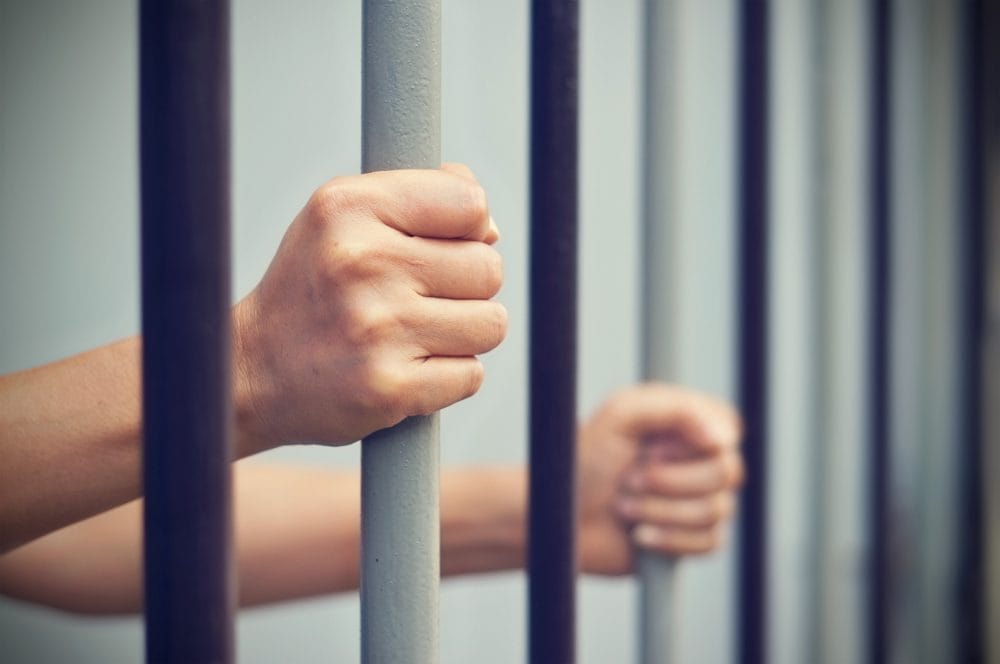Sometimes the laws that cause the most damage hide in plain sight. They are rarely discussed on the evening news or debated with fiery passion in Congress. They linger quietly in city codes, state statutes, and federal regulations, slowly but surely turning ordinary life into a maze of unintended consequences.
While major legislation grabs headlines, these seemingly minor rules break up families, destroy careers, and drain entire communities of hope. The real tragedy is how many people never see them coming until it is too late.
1. Cash Bail Requirements
Across the United States, cash bail remains one of the most quietly devastating legal traps. This system demands that people pay up just to avoid sitting in jail before they ever see a judge or jury. For those without deep pockets, days, weeks, or even months behind bars can mean lost jobs, broken homes, and shattered trust. Meanwhile, wealthier defendants walk free to prepare their defense in comfort. Many lives spiral downward simply because freedom has a price tag.
2. Civil Asset Forfeiture
Civil asset forfeiture laws allow police to seize property suspected of being connected to a crime — without ever securing a conviction. In some states, no charges need to be filed at all for officers to keep cash, cars, or even homes. Innocent people often spend years and thousands in legal fees trying to get their property back. Many give up because fighting the system costs more than what was taken. What looks like a tool for fighting crime easily becomes legalized theft.
3. Mandatory Minimum Sentencing
Mandatory minimum sentencing laws remove judges’ power to consider context or intent. One mistake, like carrying a small amount of drugs, can lock someone away for years with no chance at rehabilitation. Families lose parents, children grow up with resentment, and communities pay the price in broken potential. These rules fill prisons but rarely fix the problems that lead to crime. Once inside the system, many find escaping nearly impossible.
4. Driver’s License Suspensions for Unpaid Fines
In many states, unpaid traffic tickets or court fees can trigger an automatic license suspension. Without a license, people can’t get to work, pick up their kids, or run daily errands. Many end up driving anyway, risking bigger fines or even jail time for a simple necessity. What starts as a small debt turns into a cycle of poverty and punishment. Losing the right to drive often means losing the chance to recover.
5. Loitering Laws
Loitering laws give police sweeping power to arrest people simply for standing in the wrong place at the wrong time. These vague rules are often used to target the homeless, teenagers, and marginalized groups. A single arrest record can close doors to jobs, housing, or even education. People who are already struggling find themselves deeper in the hole. A harmless pause on a sidewalk should never be a ticket to jail.
6. Criminalization of Homelessness
In many cities, sleeping in cars, pitching a tent, or resting in public spaces is illegal. Instead of providing shelter or support, local governments slap fines or jail time on people with nowhere else to go. A minor charge can snowball into a criminal record that makes finding work or housing even harder. Homelessness becomes a revolving door of punishment rather than a problem to solve. Laws that criminalize poverty only guarantee it persists.
7. Student Loan Forgiveness Taxation
Some states treat forgiven student loan debt as taxable income. People who finally escape crushing student loans get hit with an unexpected bill from the tax man. For many, this means thousands owed in taxes they cannot afford to pay. Instead of a fresh start, it’s another round of financial ruin. A law meant to help becomes a trap when the tax code punishes relief.
8. Felony Disenfranchisement
Millions lose the right to vote because of a felony conviction, even long after serving their sentence. This law strips away a basic civic right that should be automatic for every citizen. Entire communities lose political power when large numbers of residents can’t cast a ballot. Without a voice, policies never reflect their needs, fueling cycles of neglect and inequality. Voting should never be a privilege reserved for the few.
9. Anti-Panhandling Ordinances
In towns and cities nationwide, simple acts like asking for spare change are illegal. Anti-panhandling laws push people already on the edge deeper into desperation. A citation or fine for panhandling can lead to arrest when people can’t pay. Criminal records follow them for life, closing doors that might help them get back on their feet. Compassion should never be criminalized under the guise of “clean streets.”
The Big Damage That Comes from Small Laws
These nine laws might appear small on paper but carry devastating weight in real life. Each one quietly drains communities of opportunity, freedom, and dignity while masquerading as minor rules to maintain order. The damage they inflict rarely makes headlines but is felt in ruined credit, fractured families, and lost futures.
Real change starts with awareness and a willingness to question what laws really protect. Share thoughts and stories below — what “small” law needs to change in your community?
Read More
10 Legal Loopholes That Corporations Use to Block Customer Lawsuits
10 Warnings Labels That Are Legally Required—But Wildly Ignored







